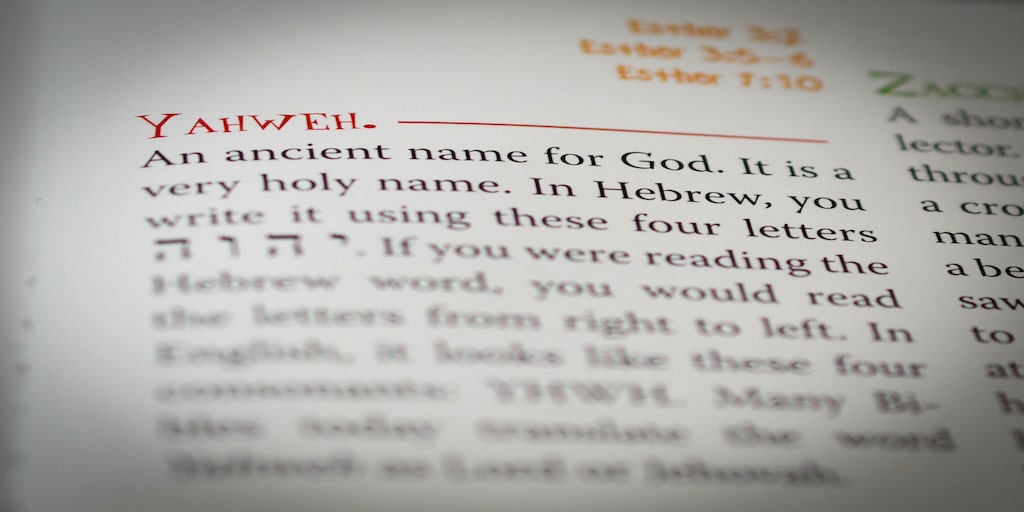YHWH – God’s Memorial Name

In Exodus 3:13-15 God identified Himself to Moses as YHWH (pronounced Yahweh), and identified that as His “memorial name to all generations.” The root of this name is the Hebrew verb hayah, “to be”. This is the God who is—who He is now, who He has always been, and who He will always be.
Moses said to God [Elohim][1], “Suppose I go to the Israelites and say to them, ‘The God [Elohim] of your fathers has sent me to you,’ and they ask me, ‘What is his name?’ then what shall I tell them?”
God [Elohim]said to Moses, “I am who I am [Ehyeh asher ehyeh]. This what you are to say to the Israelites: ‘I am [Ehyeh] has sent me to you.’” God [Elohim] also said to Moses, “Say to the Israelites, ‘The LORD [YHWH], the God [Elohim]of your fathers—the God [Elohim] of Abraham, the God [Elohim] of Isaac and the God [Elohim] of Jacob—has sent me to you.’ This is my name forever, the name you shall call me from generation to generation.”
This name speaks to the point that God is self-existent. That is, He was not “caused” or “created” by some other power or force. Theologians will speak of Him as the “uncaused cause”—He caused or brought all things into being, but He Himself does not have a beginning or a cause. He has existed and will exist for all eternity—the same yesterday, today and forever! (Hebrews 13:8; cf. Malachi 3:6)
This name also speaks to God being “relational.” That is, He wants to have a relationship with us—the people whom He created. And He has gone to extraordinary lengths to make Himself known to us, to love and protect His people.
Here are just a few examples, among the 6800-plus times YHWH is used in Scripture:
Exodus 34:5-6 – Then the LORD [YHWH] came down in the cloud and stood there with him and proclaimed his name, the LORD [YHWH]. And he passed in front of Moses, proclaiming, “the LORD [YHWH], the LORD [YHWH], the compassionate and gracious God [El], slow to anger, abounding in love and faithfulness,…”
Psalm 32:10 – Many are the woes of the wicked, but the LORD [YHWH]’s unfailing love surrounds the one who trusts in him.
Psalm 34:4 – I sought the LORD [YHWH], and he answered me; he delivered me from all my fears.
Psalm 34:18 – The LORD [YHWH] is close to the brokenhearted and saves those who are crushed in spirit.
Psalm 102:1 – Hear my prayer, Oh LORD [YHWH]; let my cry for help come to you. (Read this whole psalm substituting “YHWH” anywhere you see LORD (all caps). Make note of all the things YHWH does for His people!)
Psalm 103:1-5 – Praise the LORD [YHWH], my soul, all my inmost being praise his holy name. Praise the LORD [YHWH], my soul, and forget not all his benefits—who forgives all your sins and heals all your diseases, who redeems your life from the pit and crowns you with love and compassion, who satisfies your desires with good things so that your youth is renewed like the eagle’s. (Again, this whole psalm is full of the LORD [YHWH]’s blessings upon His people.)
Proverbs 3:26 – the LORD [YHWH] will be at your side and will keep your foot from being snared.
As we mentioned above, God wants us to know Him, and He has gone to astonishing lengths to reveal Himself to us. In fact, He sent His only begotten Son to live among us and reveal Himself to us. Jesus often said things to the effect that those who knew Him knew the Father, those who saw Him saw the Father, those who denied Him also denied the Father.
John 1:18 – No one has ever seen God, but the one and only Son, who is himself God and is in closest relationship with the Father, has made him known.
John 14:6-9 – No one comes to the Father except through me. If you really know me, you will know my Father as well…. Anyone who has seen me has seen the Father.
Matthew 11:27 – no one knows the Father except the Son and those to whom the Son chooses to reveal him.
John 17:25-26 – Righteous Father,… I have made you known to them, and will continue to make you known in order that the love you have for me may be in them and that I myself may be in them.
In addition to the seven statements in the Gospel of John where Jesus identified Himself as “I am” (the Greek translation of YHWH is ego eimi), there is the scene at Jesus’ trial where He answers the question, “Are you the Messiah, the Son of the Blessed One,” by saying “I am.” (See also John 8:54-58.)
There can be no doubt that the YHWH, the “I Am” of the Old Testament and the ego eime, the “I Am” of the New Testament, are the same. Jesus Himself declared, “I and the Father are one” (John 10:30).
But we shall end with this beautiful blessing pronounced upon the Israelites:
“The LORD [YHWH] bless you and keep you; the LORD [YHWH] make his face shine on you and be gracious to you; the LORD [YHWH] turn his face toward you and give you peace” (Numbers 6:24-26).
Go Deeper
- Where is God When Life Hurts? – Package Offer with SD Card
- The Evidence for the Historical Jesus – Updated Edition
- Join the Inner Circle of Friends!
[1] See separate article in which we discuss Elohim, the strong and mighty one.







